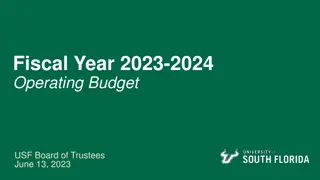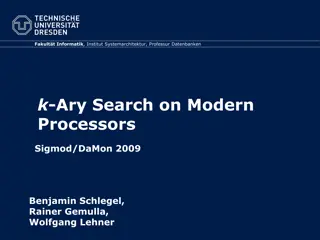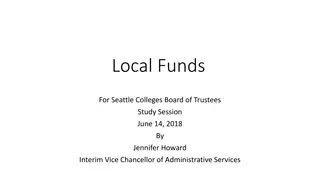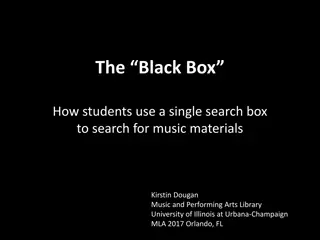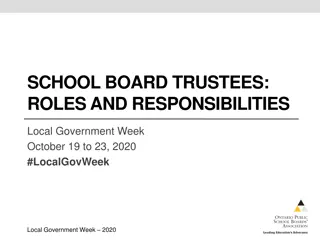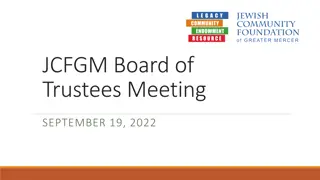CEO Search Process in Board of Trustees: Steps and Considerations
Explore the detailed process and considerations involved in conducting a CEO search within a Board of Trustees. From clarifying district needs to appointing committees, screening applications, and selecting the right candidate, each step plays a crucial role in ensuring successful leadership transition. The use of consultants, assigning responsibilities, establishing criteria, and evaluating leadership needs are essential aspects highlighted in this informative guide.
Uploaded on Sep 12, 2024 | 0 Views
Download Presentation

Please find below an Image/Link to download the presentation.
The content on the website is provided AS IS for your information and personal use only. It may not be sold, licensed, or shared on other websites without obtaining consent from the author. Download presentation by click this link. If you encounter any issues during the download, it is possible that the publisher has removed the file from their server.
E N D
Presentation Transcript
Shasta CCD Board Retreat CEO Search, Accreditation & Student Success Cindra Smith, Ed. D. Board Facilitation and Development cindrasmith@comcast.net November 6, 2010
CEO Search One of the most important, if not the most important, decision a board of trustees makes Clarifies needs of the district and qualities of leadership that will best meet those needs May take 6-9 months Results in a CEO with board, community and college support Controlled by Board Fair, professional Clearly communicated
Steps in the Process Interim? Consultant? Design/affirm process Institutional Assessment Identify the criteria Appoint Committee Advertise and recruit Screen Applications Conduct Interviews Selection & contract Welcome & orientation
Interims Why and when to appoint Determine role Follow appropriate laws and processes
Use a Consultant? For all or parts of the process A consultant helps Clarify district needs Bring people together Avoid mistakes in the process Provide a neutral, confidential contact for candidates Identify and recruit candidates Conduct background checks Advise and support search committee & board Drawbacks include: Cost; Over-reliance on consultant; Lack of alignment with district needs; Skills may be available in the district
Who Does What? Assign Responsibilities Board and trustee roles Contracting with a consultant Establish expectations Solicit proposals, interview, select District staff contact Oversight Committee Who is on it; what does it do Calendar
What Leadership Do You Need? Establish Criteria and Expectations Who to involve in this discussion Assess college and community needs Opportunities and goals Challenges and issues A related question: What kind of CEO can you attract? Are you a well-functioning district and board, or will the CEO be expected to address major problems? E.g. a divided board, financial problems, accreditation status, bargaining impasse
Expectations and Parameters Salary and contract discussion Consult with district attorney Sample contracts Candidate pool and finalists How many? Committee recommendations Ranked? Not ranked?
What to Avoid A board or board chair that does not function well Lack of discussion about leadership needs Relying on inexperienced people to do the search Hiring a consultant that doesn t take the time to understand the district Inadequate time and resources Confidentiality leaks Unclear communication about roles in the process Ignoring community and stakeholder needs Not supporting the new CEO when hired
Accreditation & the Board Role Your process and timeline Workshop by ACCJC Staff? Standard IVB Student Learning Outcomes and Student Success
Standard IVB.1 1. The institution has a governing board that is responsible for establishing policies to assure the quality, integrity, and effectiveness of the student learning programs and services and the financial stability of the institution. The governing board adheres to a clearly defined policy for selecting and evaluating the chief administrator for the college or the district/system. a. The governing board is an independent policy-making body that reflects the public interest in board activities and decisions. Once the board reaches a decision, it acts as a whole. It advocates for and defends the institution and protects it from undue influence or pressure. b. The governing board establishes policies consistent with the mission statement to ensure the quality, integrity, and improvement of student learning programs and services and the resources necessary to support them. c. The governing board has ultimate responsibility for educational quality, legal matters, and financial integrity.
d. The institution or the governing board publishes the board bylaws and policies specifying the board s size, duties, responsibilities, structure, and operating procedures. e. The governing board acts in a manner consistent with its policies and bylaws. The board regularly evaluates its policies and practices and revises them as necessary. f. The governing board has a program for board development and new member orientation. It has a mechanism for providing for continuity of board membership and staggered terms of office. g. The governing board s self-evaluation processes for assessing board performance are clearly defined, implemented, and published in its policies or bylaws.
h. The governing board has a code of ethics that includes a clearly defined policy for dealing with behavior that violates its code. i. The governing board is informed about and involved in the accreditation process. j. The governing board has the responsibility for selecting and evaluating the district/system chief administrator (most often known as the chancellor) in a multi-college district/system or the college chief administrator (most often known as the president) in the case of a single college. The governing board delegates full responsibility and authority to him/her to implement and administer board policies without board interference and holds him/her accountable for the operation of the district/system or college, respectively. In multi-college districts/systems, the governing board establishes a clearly defined policy for selecting and evaluating the presidents of the colleges.
Board Role in Student Success Board Role in Student Success
Role #1: Leadership Provide, Expect and Ensure Visible, Persistent Leadership for student success At all levels, in every area of the college Hire the right president/chancellor who is passionate and relentless about student success.
Role #2: Strategic Focus and Plan Provide and ensure strategic focus and plan that is relentless and sustained over time. Student success is a Board priority The strategic plan puts student success at the center. Small number of clear priorities each year Identify Board responsibilities for achieving priorities; evaluate board performance Stick with the plan; monitor progress toward goals
Role #3: Culture of Evidence Support a culture of inquiry, not blame Be curious. Engage in courageous conversations about data and student performance Expect and support research Establish metrics for monitoring progress Regularly monitor progress
Role #4: Educational Effectiveness Support and expect doing education effectively and by design Know what works; stop doing what doesn t work Focus on what can be done Student engagement High expectations Focus on the front door Make effective practice mandatory for students
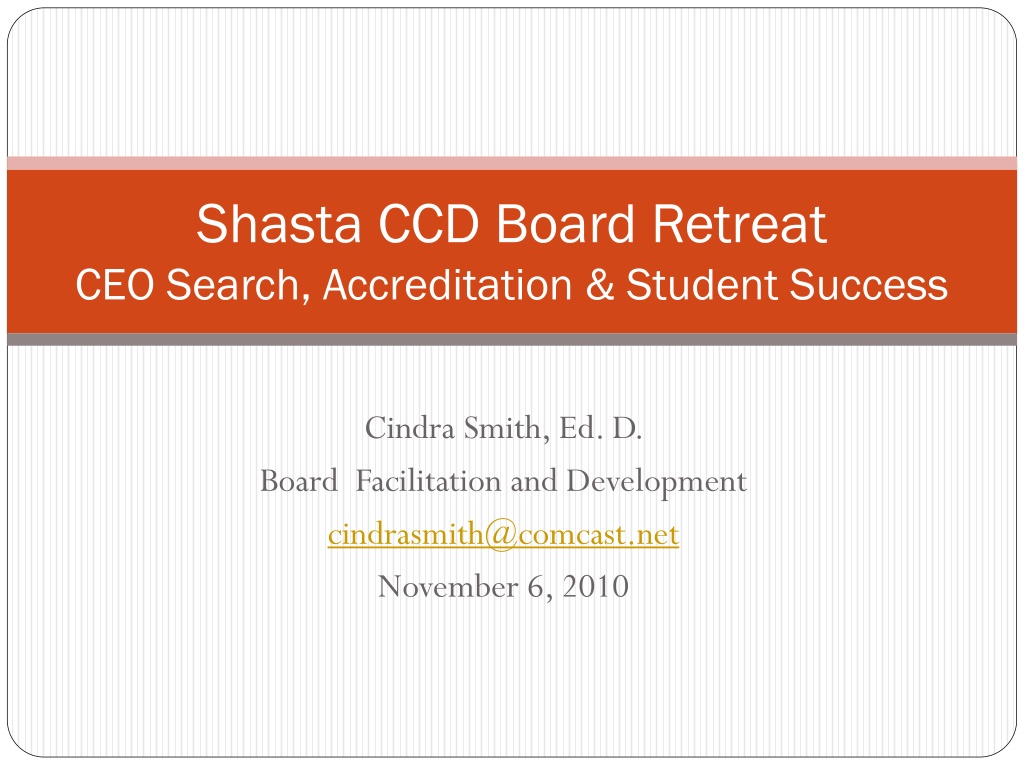
 undefined
undefined










